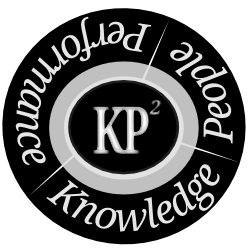Position Paper: Enterprise 2.0 and Knowledge Management
Over the past couple of months, I’ve worked on a position paper with a team of people from the German Knowledge Management Association, also called GfWM. The team consisted of practitioners, consultants, and a researcher, with each of us bringing slightly different perspectives to the table. This is not a research paper and our intention was not to write one either. Continue reading Position Paper: Enterprise 2.0 and Knowledge Management
ICWSM12: Conference on Weblogs and Social Media
The 6th International Conference on Weblogs and Social Media is definitely on my shortlist of conferences I would like to attend in 2012. It will take place from June 5 to June 8 in Dublin, Ireland. Keynote speakers include Andrew Tomkins, Patrick Meier and Lada Adamic.
The International AAAI Conference on Weblogs and Social Media (ICWSM) is a unique forum that brings together researchers from the disciplines of computer science, linguistics, communication, and the social sciences. The broad goal of ICWSM is to increase understanding of social media in all its incarnations. Submissions describing research that blends social science and computational approaches are especially encouraged.
 via icwsm.org
via icwsm.org
Quantitative assessment of the Internet’s economic impact by @McKinsey_MGI
A live presentation of the below report, recorded at the e-G8 summit, can be found here.
Call for Papers: Social Media Network Analysis
Here is an interesting call for papers on social media network analysis. The session will be held at the International Conference on Social Science Methodology in Sydney, Australia, from July 9 to 13, 2012. Submissions can be made until December 1, 2011.
Social Media Network Analysis
Session Convenor: Robert Ackland, Australian National University
This session is focused on innovative approaches for collecting and analysing social media network data in the context of social science research. Relevant data sources include digital trace data from newsgroups, WWW hyperlink networks, virtual worlds, social network sites (e.g. Facebook), blogs and micro-blogs (e.g. Twitter). While all papers focused on innovative research methods for born-digital social data are welcome, preference will be given to those involving statistical social network analysis techniques. We are also interested in papers focusing on computational social science and the challenges (and opportunities) for social scientists in an era of abundance of large-scale social media data sets.

